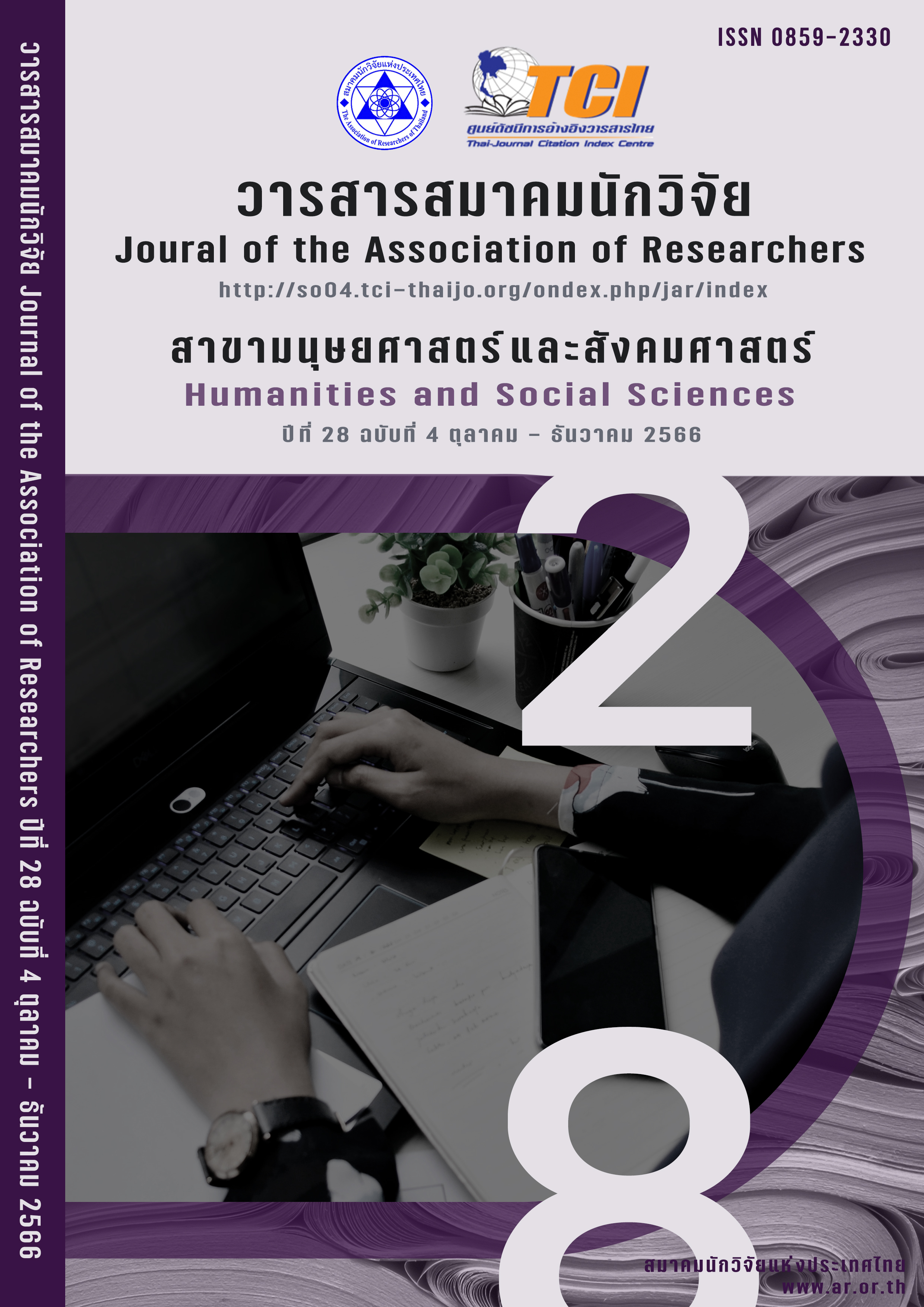Strategic Family Counseling and Positive Psychology
Main Article Content
Abstract
The family institution is a key institution that everyone should be aware of its importance. Because it is the first institution that an individual must encounter before encountering other institutions. If there is conflict or violence in the family institution, members within the family will be affected as well, both physically and mentally. Therefore, the purpose of this article is to provide information on strategic family counseling. counseling and the application of positive psychology to strategic family counseling. The authors examined the relevant literature. It is presented as an advantage for psychologists who must assist clients with family issues. It can also alter the behavior of each member of the family in a positive way, allowing them to manage and solve problems independently. According to the study's findings that the integration of positive psychology with strategic family counseling techniques was used. This approach supports the counselor's development in a positive manner by prioritizing the utilization of the counselor's abilities throughout therapy, as opposed to primarily addressing past issues. This method facilitates the counselor in adapting their cognitive processes, encouraging optimism, and recognizing their own intrinsic value. Additionally, it engenders a greater sense of positivity and facilitates a wider range of pleasant emotions and experiences. Various strategic family counseling strategies are employed, with a specific emphasis on addressing current issues and concerns. Modify an individual's conduct Another effective approach in family therapy involves altering the cognitive process, whereby strategic family counseling approaches and positive psychology are employed.
Article Details

This work is licensed under a Creative Commons Attribution-NonCommercial-NoDerivatives 4.0 International License.
บทความที่ปรากฏในวารสารนี้ เป็นความรับผิดชอบของผู้เขียน ซึ่งสมาคมนักวิจัยไม่จำเป็นต้องเห็นด้วยเสมอไป การนำเสนอผลงานวิจัยและบทความในวารสารนี้ไปเผยแพร่สามารถกระทำได้ โดยระบุแหล่งอ้างอิงจาก "วารสารสมาคมนักวิจัย"
References
ไทยพับบลิเค. (2020). ผลกระทบของ COVID-19 ต่อประเทศไทย ในปัจจุบันและอนาคต. สืบค้นจาก https://thaipublica.org/2020/11/pipat-65/
เพ็ญนภา กุลนภาดล. (2559). การปรึกษาครอบครัว. ชลบุรี: เนติกุลการพิมพ์.
ศิริรัตน์ คุปติวุฒิ. (2545). ครอบครัวบำบัดและการให้คำปรึกษา. กรุงเทพฯ. โรงพิมพ์เรือนแก้ว.
Alvidrez, J. (1999). Ethnic variations in mental health attitudes and service use among low income African American, Latina, and European American young women.
Community Mental Health Journal, 35(6), 515-530.
Carlson, J., & Ellis, C. M. (2004). Treatment agreement and relapse prevention strategies in couple and family therapy. The Family Journal, 12(4), 352–357.
Collie W. Conoley, Evelyn Winter Plumb, Kathryn J. Hawley, Kathryn Z. Spaventa-Vancil, & Rafael J. Hernández. (2015). Integrating Positive Psychology into Family Therapy: Positive Family Therapy. The Counseling Psychologist, 43(5), 703–733.
Corey, G. (2012). Theory and Practice of Counseling and Psychotherapy. Australia: Brooks/Cole.
George R.L., & Cristiani, S. (1995). Counseling, theory and practice. Boston: Allyn and Bacon Publishers.
Goldenberg, I., Stanton, M., & Goldenberg, H. (2017). Family therapy (9th ed.). Boston, MA: Cengage.
Haley, J. (1963). Strategies of psychotherapy. New York: Grune & Stratton.
Hettich, N., Entringer, T.M., Kroeger, H. et al. (2022). Impact of the COVID-19 pandemic on depression, anxiety, loneliness, and satisfaction in the German general population: a longitudinal analysis. Social Psychiatry and Psychiatric Epidemiology, 57(12), 2481–2490.
Nadeem, E., Lange, J., Edge, D., Fongwa, M., Belin, T., & Miranda, J. (2007). Does stigma keep poor young immigrant and U.S. born black and Latina women from seeking mental health care. Psychiatric Services, 58(12), 1547-1554.
Parks, A.C. & Biswas-Diener, R. (2013). Positive interventions: Past, present and future. In T. Kashdan & Ciarrochi, J. (Eds.), Mindfulness, Acceptance, and Positive Psychology: The Seven Foundations of Well-Being. Oakland, CA: Context Press.
Seligman. M. (1998). Learned optimism. New York, NY: Simon & Schuster.
Seligman, M., & Csikszentmihalyi, M. (2000). Positive Psychology: An Introduction. American Psychologist, 55(1), 5-14.
Sin, N. L., & Lyubomirsky, S. (2009). Enhancing well-being and alleviating depressive symptoms with positive psychology interventions: A practice-friendly meta-analysis. Journal of Clinical Psychology, 65(5), 467-487.
Snyder, D. K., Cozzi, J. J., & Mangrum, L. F. (2002). Conceptual issues in assessing couples and families. In H. A. Liddle, D. A. Santisteban, R. F. Levant, & J. H. Bray (Eds.), Family psychology: Science-based interventions. Washington, DC: American Psychological Association.
Wylie, M. S. (1990). Family therapy’s neglected prophet. Family Therapy Networker, 15(2), 25–37.
Translated Thai References
Kulnaphat, P. (2017). Kan Prueksa Khropkhrua [Family counseling]. Chonburi: Netikul Publishing.
Kuptiwut, S. (2002). Khropkhrua Bambat Lae Kan Hai Khamprueksa [Search for therapy and counseling]. Bangkok: Rueankaew Publishing House.
ThaiPublica. (2020, 11 November). Phonkrathop Khong COVID-19 To Prathet Thai Nai Patchuban Lae Anakhot [Impact of COVID-19 on Thailand now and in the future]. Retrieved July 1, 2023, from https://thaipublica.org/2020/11/pipat-65/


